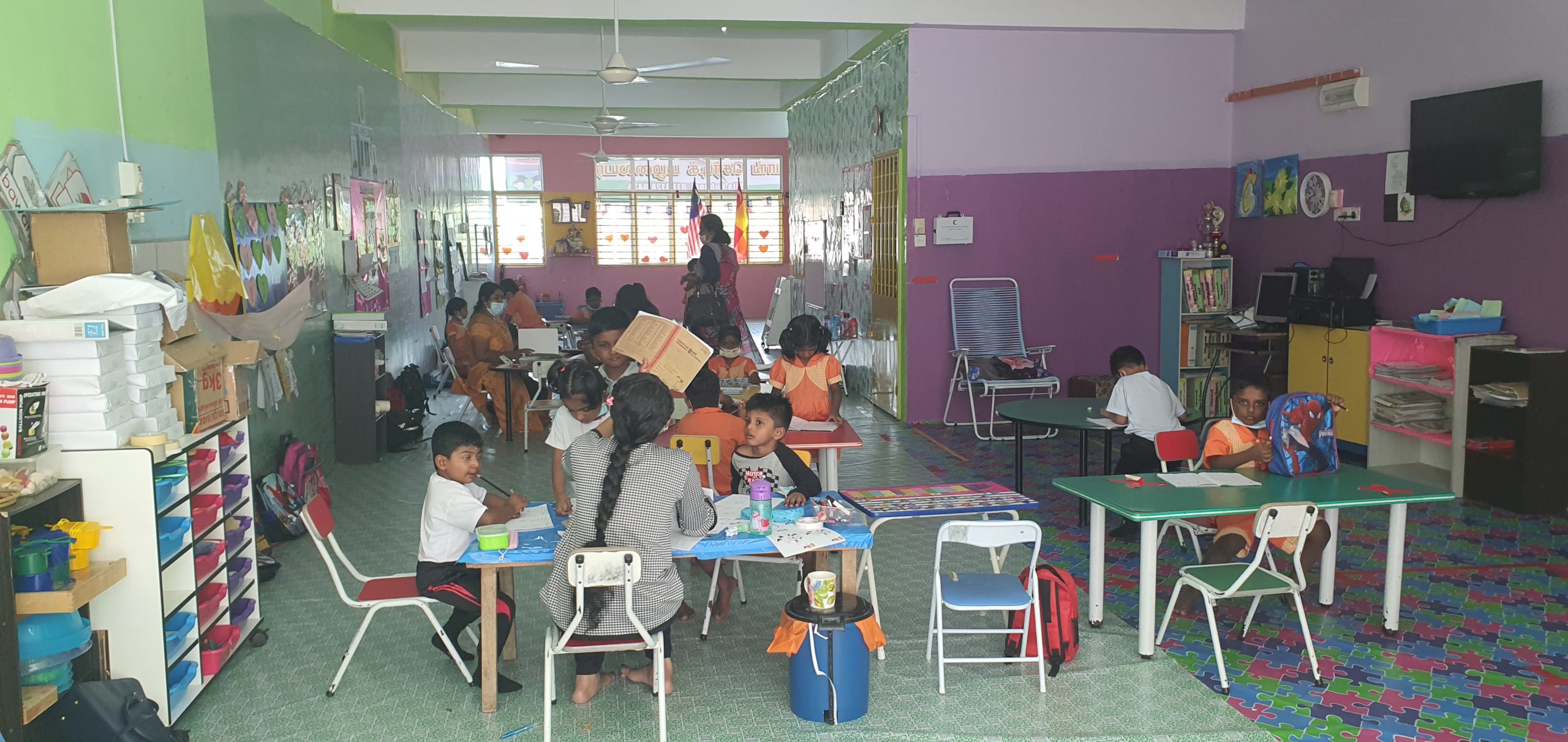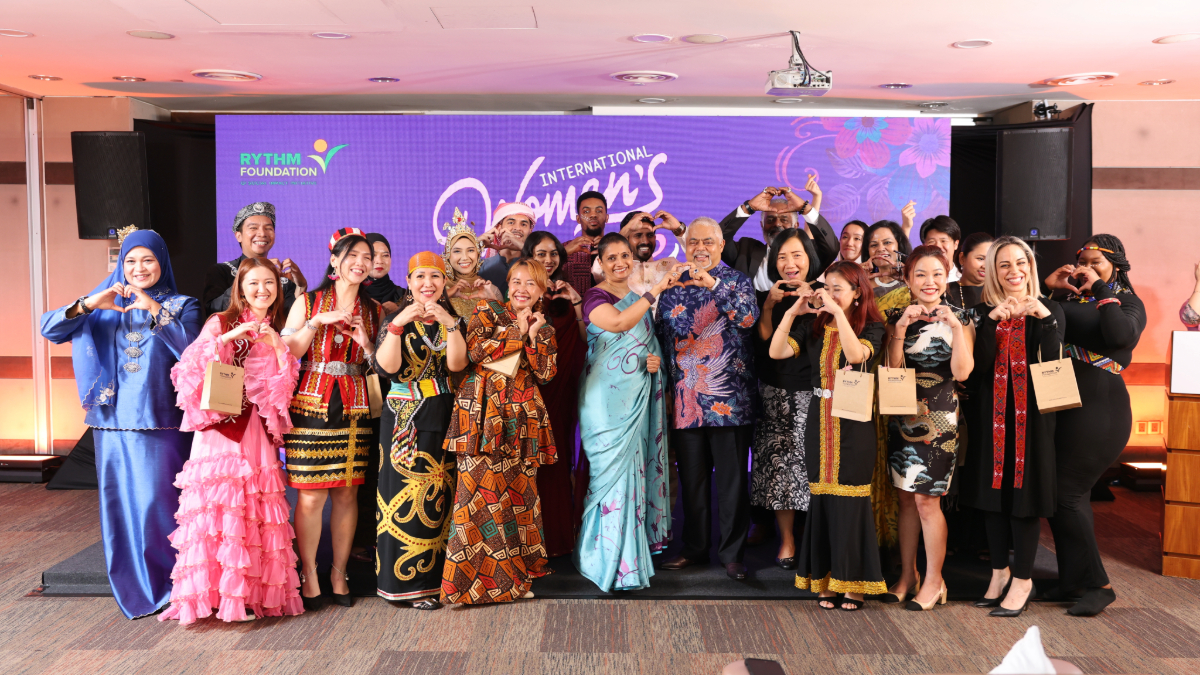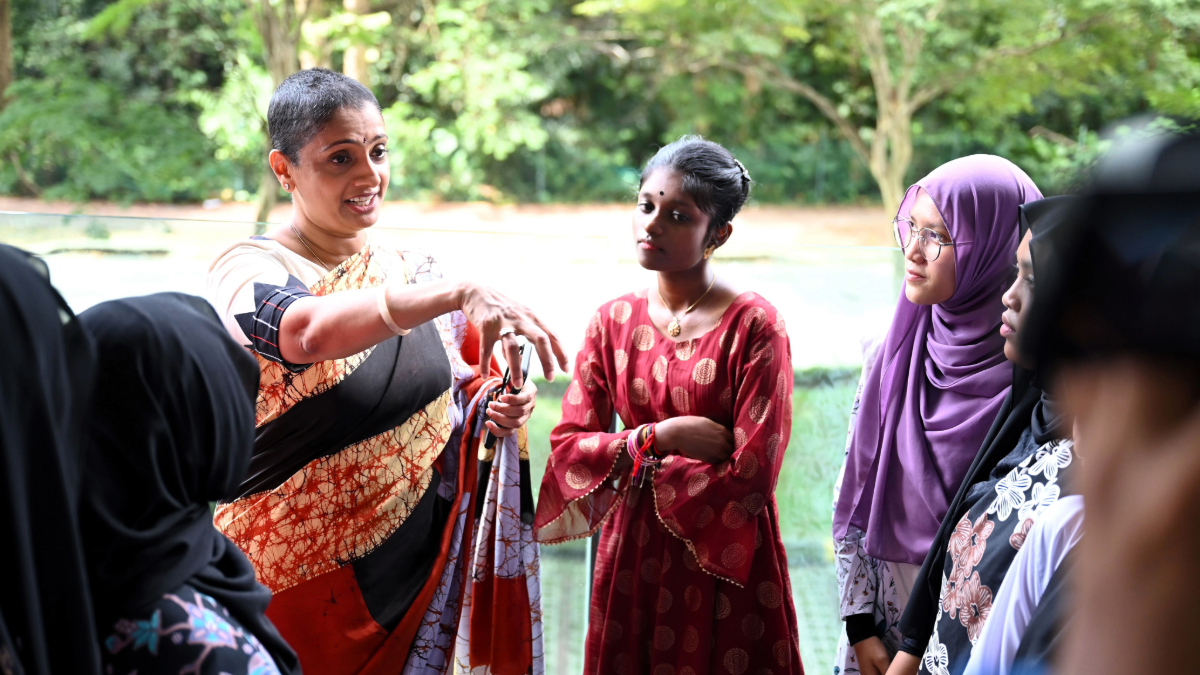“If a child steps into a Year 1 classroom without a solid foundation from a pre-school education, they begin their academic journey already falling behind, which leads to demotivation that can cascade throughout their education to the disadvantage of the child. Therefore, a pre-school education is imperative in kicking off a child’s academic journey, particularly those from disadvantaged families who lack the support and resources for social and academic progress,” said Santhi Periasamy, Head of RYTHM Foundation.Also Read: RYTHM Foundation Addresses The Plight Of Pre-School Teachers Through Salary Grant It was this notion that first led RYTHM to provide salary grants for 15 pre-schools registered under Persatuan Penjana Impian Guru-guru Malaysia (PPIGM). PPIGM is an organisation made up of educators committed to the capacity building of teachers from underserved Tamil pre-schools to improve the quality of education for their students. This network of teachers encourages knowledge and resource sharing for the continuous development of the faculty. Beyond financial support, RYTHM Foundation also works closely with PPIGM to support their capacity building efforts through seminars and other activities that provide learning opportunities and add to the teachers’ skillset to make them effective educators. The goal is to ensure that students from Tamil pre-schools have equal access to a quality education and more opportunities for success.
“The initial partnership with RYTHM also enabled us to conduct more workshops for the teachers who cannot afford these programmes on their own due to financial constraints. The number of teachers in our network has been growing and thanks to the exposure, we have been able to secure more professionals volunteering their time and knowledge to support the teachers’ professional development,” said Punitha Mokhan, President of PPIGM.Also Read: RYTHM Supports the Quiet Heroes Of B40 Communities Amidst their quest to support the Tamil pre-schools in B40 communities across Peninsular Malaysia, RYTHM discovered that some schools fell geographically under the purview of the Sime Darby Plantations, and they reached out to the Yayasan Sime Darby (YSD).
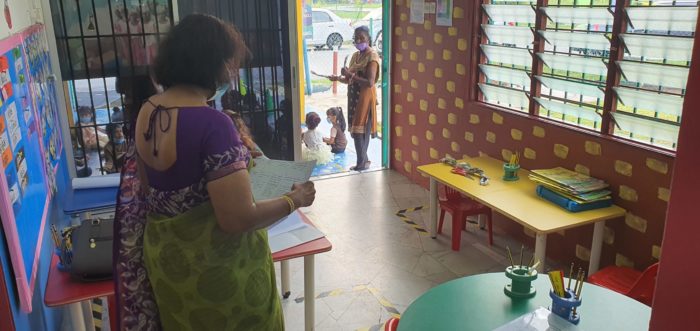 CEO of Yayasan Sime Darby, Dr Hjh Yatela Zainal Abidin shared, “Our collaboration began when RYTHM approached us to support pre-schools in poor Tamil communities and complement what they were already doing. They highlighted the desire to create a sustainable impact for these needy communities during our very first meeting and eventually invited YSD to collaborate and periodically engage with the Ministry of Education to secure buy-in for the registration of these pre-schools towards potential sustainable government support. Our common goal of sustainable assistance attracted us to ink the collaboration. In addition, providing support to the pre-schools is directly in line with the focus areas of the YSD Education pillar, including assisting the underprivileged and providing access to basic education.”
To help these schools overcome financial hurdles and lead them towards formal registration, the YSD Governing Council approved the sponsorship of a RM500,000 grant for this initiative, which will include school facilities and equipment, teaching and learning materials as well as training to upskill the teachers. YSD will also work directly with the SDP estates to provide on-ground support and assign its volunteers to coordinate and monitor deployment and usage of the planned operational support for assistances to the pre-schools.
CEO of Yayasan Sime Darby, Dr Hjh Yatela Zainal Abidin shared, “Our collaboration began when RYTHM approached us to support pre-schools in poor Tamil communities and complement what they were already doing. They highlighted the desire to create a sustainable impact for these needy communities during our very first meeting and eventually invited YSD to collaborate and periodically engage with the Ministry of Education to secure buy-in for the registration of these pre-schools towards potential sustainable government support. Our common goal of sustainable assistance attracted us to ink the collaboration. In addition, providing support to the pre-schools is directly in line with the focus areas of the YSD Education pillar, including assisting the underprivileged and providing access to basic education.”
To help these schools overcome financial hurdles and lead them towards formal registration, the YSD Governing Council approved the sponsorship of a RM500,000 grant for this initiative, which will include school facilities and equipment, teaching and learning materials as well as training to upskill the teachers. YSD will also work directly with the SDP estates to provide on-ground support and assign its volunteers to coordinate and monitor deployment and usage of the planned operational support for assistances to the pre-schools.
“As SDP is a caring organisation that goes over and above their substantial donations to YSD, the SDP estate teams will work with YSD on the ground to ensure that our assistance to the pre-schools run smoothly. This collaboration with RYTHM also aligns with the United Nations Global Compact (UNGC) Sustainable Development Goal 4, of ensuring inclusive and equitable quality education for all, and YSD believes that participation in high-quality early childhood education can positively influence children’s school readiness, literacy, and numerical skills, as well as social well-being. With that in mind, YSD hopes that our support in the next two years will assist these pre-schools in the poor Tamil communities to be well-equipped to encourage a conducive learning environment for children,” said Dr Hjh Yatela.Also Read: Enabling the Differently Abled Through Inclusive Education YSD will also work closely with RYTHM Foundation, the social impact arm of the QI Group, to periodically engage the Ministry of Education and highlight the plight of these pre-schools as well as the need for a more comprehensive framework of support for education at all levels and in all languages. The collaboration calls for the inclusion of over 100 Tamil pre-schools across the country into mainstream education and for these schools to fall under the scope of the ministry to receive support that can sustain them in the long term. In the meantime, RYTHM and YSD will work together to aid these schools in the maintenance of their infrastructure by ensuring a conducive learning environment with sufficient resources that also meet standards of safety and cleanliness.
“The education landscape is fast-evolving with continuous changes and discoveries, particularly in the current transition towards a digital paradigm. Teachers need opportunities to upskill themselves more than ever and those who do not fall within the purview of government or privately funded institutions need our support. Otherwise, we run the risk of compromising the quality of teaching and learning. The existence of these schools depends upon the skills and confidence of the teachers to keep forging ahead. The best possible measure is to transition these schools into the mainstream so that they can receive the same opportunities for development as other pre-schools that fall under the ambit of the Ministry of Education,” said Santhi.
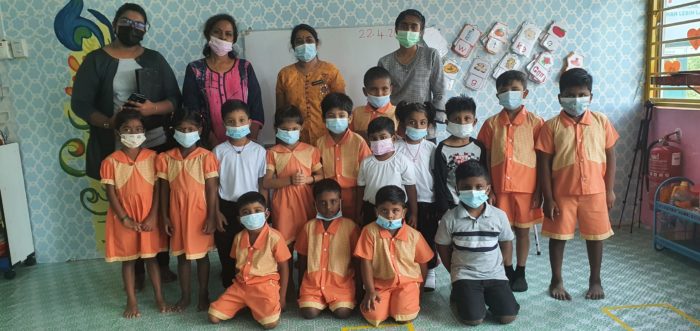 Also Read: Empowering Vulnerable Indonesian Youth Through Sports-Based Education
Dr Hjh Yatelah also shared, “Schools in rural areas are vital in helping a nation educate its people. YSD hopes that through this strategic partnership with RYTHM, the technological knowledge, presentation skills, and English language proficiency of registered community teachers can be consistently improved. With operational support, facilities, equipment, and educational kits, we hope that this partnership can increase awareness of academic importance in rural areas. YSD views this partnership as a way to reach our most needy populations and wishes to see how necessary pre-school experience for children shall demonstrate higher academic performance, educational placement and achievement as they enrol into Standard 1 primary education and adapt with the learning requirements.”
Adding to that, Punitha expressed her gratitude on behalf of PPIGM saying, “The PPIGM committee is indeed very grateful to receive this aid thanks to the support of our advisors and RYTHM. With this, we can improve upon the quality of our training for the teachers. The training also covers administrative tools and techniques for the head teachers to carry forward to their teachers so that the schools can run independently. Moving forward, our goal is to keep collaborating with other organisations for the pre-school teachers’ development and to adopt recommended practices for teaching and learning suitable for the pre-school children.”
Also Read: Maharani Learning Lab: Building A Bolder Future for Young Girls
Also Read: Empowering Vulnerable Indonesian Youth Through Sports-Based Education
Dr Hjh Yatelah also shared, “Schools in rural areas are vital in helping a nation educate its people. YSD hopes that through this strategic partnership with RYTHM, the technological knowledge, presentation skills, and English language proficiency of registered community teachers can be consistently improved. With operational support, facilities, equipment, and educational kits, we hope that this partnership can increase awareness of academic importance in rural areas. YSD views this partnership as a way to reach our most needy populations and wishes to see how necessary pre-school experience for children shall demonstrate higher academic performance, educational placement and achievement as they enrol into Standard 1 primary education and adapt with the learning requirements.”
Adding to that, Punitha expressed her gratitude on behalf of PPIGM saying, “The PPIGM committee is indeed very grateful to receive this aid thanks to the support of our advisors and RYTHM. With this, we can improve upon the quality of our training for the teachers. The training also covers administrative tools and techniques for the head teachers to carry forward to their teachers so that the schools can run independently. Moving forward, our goal is to keep collaborating with other organisations for the pre-school teachers’ development and to adopt recommended practices for teaching and learning suitable for the pre-school children.”
Also Read: Maharani Learning Lab: Building A Bolder Future for Young Girls

